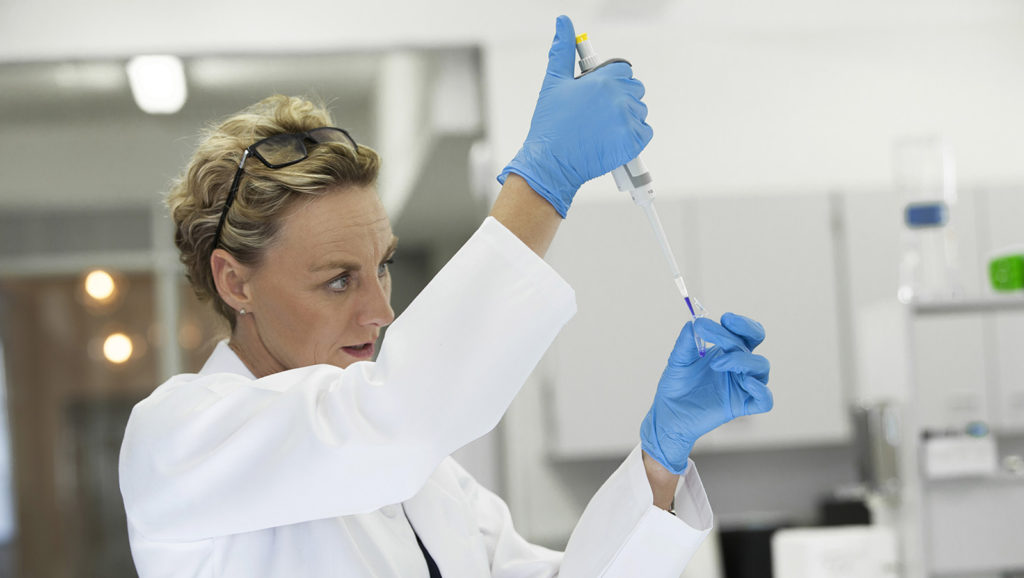In a move that signals a major leap forward in generative AI, OpenAI has quietly rolled out ChatGPT-5, its most advanced model to date….
Getting state support ‘waste of time, energy’ for biotech entrepreneur

Getting the government to back her biotech startup that produces an essential ingredient for HIV test kits has proved frustrating and often a “waste of time and energy”, says SA biotech entrepreneur Jenny Leslie.
Leslie claims that her Cape Town-based biotech startup BioTech Africa is the sole manufacturer in Africa that produces recombinant proteins, a key component of diagnostic test kits used to test for HIV and a range of other diseases, including Hepatitis C and the Zika virus.
Leslie argues that government support for biotech companies is necessary because of the high barriers to entry associated with the industry. Setting up a simple lab alone can cost more than R5-million.
However, she says getting funding from government agencies, since she launched the startup in 2014 with Jason Lurie (who is no longer a partner in the business) and Alexio Capovilla — has often been “a waste of time and energy”.
“In reality it sounds terrible but, we wasted quite a lot of time trying to raise capital through TIA (the Technology Innovation Agency) or the IDC (Industrial Development Corporation). We actually didn’t have much success there,” she explained.
In 2015 and 2016, Leslie says she also tried to get help from the Manufacturing Competitiveness Enhancement Programme (MCEP) — a Department of Trade and Industry (DTI) and Industrial Development Corporation (IDC) initiative.
But despite hiring consultants to assist her with the application process she was unsuccessful in tapping the incentive — which is aimed at supporting manufacturing firms through production incentives and an industrial financing loan facility.
A Korean company that won a recent Department of Health HIV Rapid Test Kit tender uses BioTech Africa’s recombinant proteins in its test
“I felt that they didn’t understand our product. They couldn’t understand our product and they didn’t get the vision,” she says.
She says that although she was eventually offered money by the IDC, over a year and a half ago, “the amount was small and for quite large an equity stake”. In addition, she said though TIA was interested in backing the startup, the agency at the time was facing budgetary constraints.
Leslie instead turned to the private sector, where she was able to get a R4.8-million investment from Pharma Dynamics founder and former CEO Paul Anley, in return for a 30% stake in the business.
In 2015, Anley and another investor Tommy Scott, together invested another R17-million in BioTech Africa to fund the construction and fitment of the startup’s laboratories, where the company now conducts research and development as well as manufactures its proteins out of.
‘Insane that we are importing’
Yet what Leslie finds really concerning is that rather than buy from local companies that manufacture test kits, the state is importing the kits from Korea — from a company that uses BioTech Africa’s protein to produce a test called Biotracer for the Department of Health.
“So effectively we export the protein and then the Department of Health are re-importing the (manufactured) protein in a test form,” she says. “We should not be importing anything from overseas, it’s insane that we are.”
Leslie is now looking into the possibility of raising funding to allow the company to manufacture its own range of BioSmart self-test kits for HIV, malaria and syphilis. At the moment, the startup outsources production to local companies in Cape Town. The main obstacle is the startup needs R20-million to set up such a facility.
She would not disclose how much revenue the startup has generated since launch, however she described the last six months as being the startup’s best ever. In addition to two customers in South Africa who manufacture rapid test kits, BioTech Africa now exports its recombinant proteins to clients in Asia, Europe and the US.
“Sales have grown, they have probably grown by like a thousand percent,” she joked, adding that the startup sells a milligram of its proteins for roughly $100,” she says. “We want to be in a position where we can make money, and we are tittering on that now,” she added.
If she could, she says, she would meet President Cyril Ramaphosa to tell him of her frustrations with the lack of support from the government.
“Does he realise what we are capable of doing and that we are solving a huge problem?” she asks. Perhaps, she hopes, the president will take note.
Featured image: BioTech Africa CEO and founder Jenny Leslie


